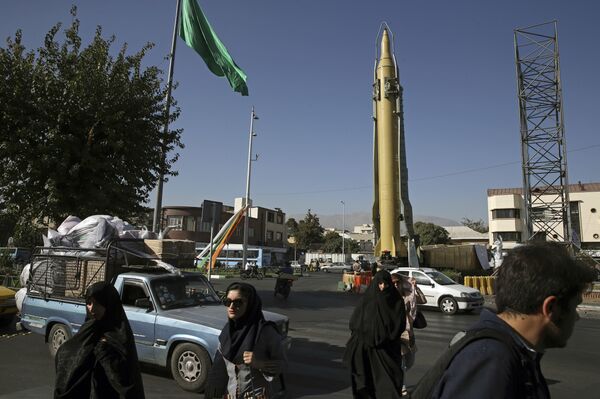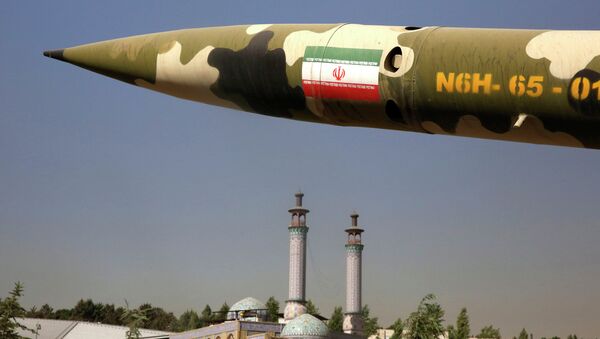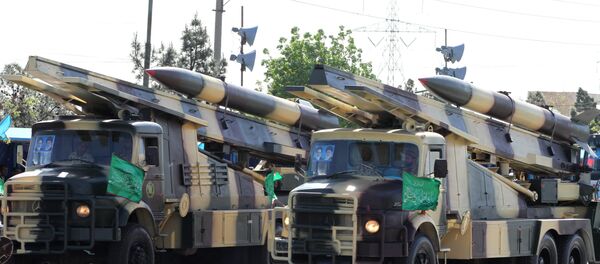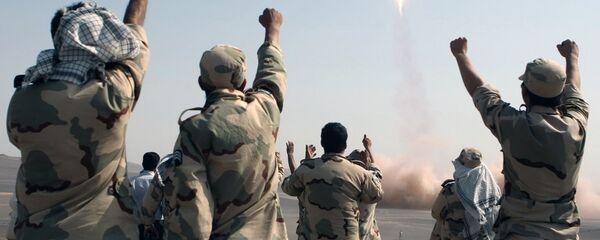The 181-page manual, the broadcaster said, was published last month and released on Tuesday by officials from the heavily industrialized southern German state of Baden-Württemberg. According to it, "in one case, Iran allegedly worked through a Chinese front company to seek 'complex metal-producing machines' from a German engineering firm. German intelligence officials blocked the sale when they told the engineering firm the merchandise was slated to be unlawfully routed to Iran."
Sputnik Iran discussed the issue with Hassan Beheshtipour, Iranian political observer, an expert on nuclear issues and foreign policy contributor for PRESS TV Network, who called the accusations absurd.
"From the ideological point of view, the 181-page report could be regarded as a new attempt of the Israeli and American intelligence services and the Zionist lobby to discredit Iran with the help of Germany. It looks like a new scenario for the implementation of their schemes which they plotted back in 2001 and which they later modified into the anti-Iranian dossier on the nuclear program. However they failed," Hassan Beheshtipour told Sputnik.
Hassan Beheshtipour pointed out at a number of mismatches which reveal a framing-up.
First of all, Iran was one of the first countries to sharply condemn and oppose the spread of weapons of mass destruction. It actively cooperates with the Organization for the Prohibition of Chemical Weapons (OPCW). It has also stepped up its cooperation with the International Atomic Energy Agency (IAEA) on the various stages of control and inspection, especially after the signing of the nuclear deal. Iran strictly fulfils all the protocols with regards to Non-Proliferation Treaty (NPT) under the full control of IAEA. No doubts have been left with regards to its nuclear program. And there are no doubts that Iran makes no attempts to develop a weapon of mass destruction.
With regards to the defensive program, which also includes the missile program, it is even more transparent. Iran repeatedly reiterated that it has the right for the self-defense and will neither discuss this issue with anyone nor negotiate on it.
The country's missile program, he said, falls within the so-called conventional weapons. Iran has condemned any productions of the chemical weapons at the highest level. This decree of Supreme Leader of Iran, Ayatollah Khamenei has been protocoled in UN. It has been repeatedly referred to during the negotiations on Iran's nuclear program. Thus Iran, apart from nuclear and chemical weapons, has no other restrictions for its defense industry.

Iran's defense industry, which also includes the missile program, had taken the center stage during the Iran-Iraq war (1980-1988) when the regime of Saddam Hussein was bombing Iranian cities. Iran then was forced to turn to many countries with the request to supply missile weaponry to be able to defend itself. It had no missile engineering at that time. However practically no one (except for 2 countries) responded to its requests. It gave an impulse to Tehran to set up and further develop its missile engineering.
Since then Iran has reached high success in this area, it now possesses its own developments and technologies. Thus it simply does not need any know-hows of German or Chinese companies, especially bypassing the sanctions, which are still partially in place.
Thus, the expert said, all the accusations of Iran, put forward in this report, are absolutely absurd. Iran is developing missiles of various ranges purely for its defensive purposes in case of an external attack. Iranian missile program is of defensive and not of offensive character. It is a mean of containment, and not of aggression, Hassan Beheshtipour finally stated.





